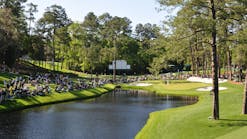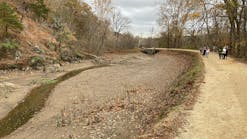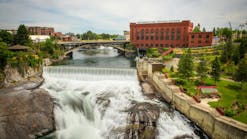Malibu’s Premier Sushi Restaurant Features Stormwater Sustainability
Introduction
Overlooking one of California’s most famous beaches, Nobu has become a model for contemporary restaurant design, service, and cuisine that lives up to its demanding relationship with the sea. Although Nobu is now an operating success, the developers of Malibu California’s marquee restaurant had some unique challenges to address.
Goals
Stormwater hazards impact all water bodies, and our coastlines are typically the last line of defense to prevent plastics, trash, and other pollutants from contaminating these waters and harming wildlife; so there is a significant opportunity to enhance stormwater treatment and protect the ocean.
On California’s coast, the densely populated county of Los Angeles produces many hazards that enter our storm drains every day. But the Nobu property is no different and pointedly positioned to help address these hazards and act as stewards of the very resource that provides Nobu with quality fish every day.
Beyond the environmental concerns, Nobu is set on some of the most valuable square footage in the world. And maximizing space and efficiency was a top priority.
Solution
The Malibu restaurant site integrated two Modular Wetlands Linear units. The Modular Wetlands is a stormwater biofilter uniquely designed to save land and replicate natural processes to remove a variety of pollutants from stormwater runoff. Some of those pollutants include fine TSS, bacteria, oils & grease, plastics, trash, heavy metals, and harmful nutrients like nitrate and phosphorus – that are known to overwhelm oxygen levels and devastate fish populations. Given the value of the coastal real estate in Southern California, Nobu had an enormous incentive to maximize land usage and save space. Above ground bioretention systems have a singular surface area, and typically occupy an average of 1,795 square feet of space (per impervious acre). In comparison, the Modular Wetlands Linear is submerged, and takes up a mere 63 square feet. When those estimates are applied to the Nobu site plan, the comparisons are impressive. The twin Modular Wetlands saved an estimated 3,464 square feet, representing roughly $3 million dollars of Malibu real estate value, plus returns on parking revenue.
Conclusion
Today, Nobu continues to share the atmosphere it set out to protect. The Modular Wetlands Linear biofiltration systems are saving land, yet still beautifying the landscaped areas and actively contributing to the shared mission by addressing pollutants such as TSS, nitrates, phosphorus, oils, trash, and plastics before they reach the Pacific Ocean.
Editor's Note: Scranton Gillette Communications and the SGC Water Group are not liable for the accuracy, efficacy and validity of the claims made in this piece. The views expressed in this content do not reflect the position of the editorial teams of Water & Wastes Digest, Water Quality Products and Storm Water Solutions.






